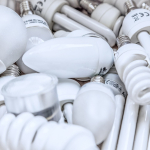As you prepare to embrace the independence that comes with moving into your first apartment, it’s crucial to get your finances in order. Understanding how to create your first apartment budget will set the foundation for a smooth transition from living at home to living on your own. Moreover, knowing your responsibilities when it comes to estimating rent and utility costs will help you avoid any unpleasant surprises. Additionally, you’ll benefit from our essential moving out financial tips, which will guide you through the process of setting up utilities for the first time and managing your security deposits wisely. Gear up for this exciting new chapter with the confidence that comes from being financially prepared!
Creating Your First Apartment Budget
Budgeting is a crucial step in ensuring your financial stability when moving out. Start by listing your monthly income, whether from a job or any side hustles. Next, identify your monthly expenses, including rent and utilities, groceries, transportation, and personal costs. It’s essential to calculate your rent based on the 30% income rule, which suggests you should not spend more than 30% of your gross income on housing.
Key Components of Your Apartment Budget
| Expense | Estimated Cost |
|---|---|
| Rent | 30% of income |
| Utilities (electric, water, internet) | $150 – $300 (average) |
| Groceries | $200 – $400 |
| Transportation | $100 – $200 |
| Insurance ( renters) | $15 – $30 |
| Entertainment | $100 – $200 |
| Miscellaneous | $50 – $100 |
Additionally, set aside funds for one-time costs like a security deposit and moving expenses. Being mindful of your budgeting will prepare you for the moving out financial tips you’ll need as a new tenant, and understanding what to account for upfront will ease the transition. It’s also wise to regularly review and adjust your budget as needed to ensure you stay on track and avoid surprises! Finally, consider opening a savings account to ensure you’re building up a financial cushion as you settle into your new place. Remember, budgeting sets the foundation for a successful independent living experience.

Understanding Utilities and Other Financial Responsibilities
As you transition into your first apartment, it’s crucial to comprehend the various utilities and moving out financial tips that can impact your budget. First, identify which utilities you will be responsible for, typically including water, electricity, gas, and internet. Depending on your rental agreement, some may be bundled into your rent, while others require individual setup.
Key Utilities and Responsibilities
| Utility | Considerations |
|---|---|
| Water | Often included in rent; check if there are usage limitations. |
| Electricity | Varies based on usage; set up before your move-in date. |
| Gas | May be necessary for heating or cooking; confirm its necessity. |
| Internet | Research providers for reliable service and competitive pricing. |
Additionally, factor in other financial responsibilities such as renters insurance, which safeguards your belongings against theft or damage. While not always mandatory, having renters insurance is wise and keeps you protected.
To manage all these expenses effectively, implement a setting up utilities first time checklist. Review your lease thoroughly and communicate with your landlord about any questions regarding your responsibilities. By understanding these financial components, you’ll set a solid foundation for your new living situation.
Frequently Asked Questions
How much of my income should I spend on rent?
It’s essential to establish a budget before moving into your first apartment. Experts typically recommend adhering to the ‘30% rule,’ which suggests that you should not allocate more than 30% of your gross monthly income toward rent. This budget includes not just the rent itself, but also takes into account utilities and other associated costs. For example, if your monthly income is $3,000, you should aim to spend a maximum of $900 on rent and utilities combined. This guideline helps ensure that you have enough left over for other expenses like groceries, transportation, and savings.
What utility expenses should I prepare for when moving into an apartment?
As you consider your first apartment, budgeting for utilities is crucial. Typically, you’ll need to cover essential utilities such as water, electricity, gas, internet, and possibly trash removal. Some apartments may have these costs included in your rent, so it’s vital to clarify this with your landlord during your apartment tour. If utilities are not included, research local utility providers, find out their average monthly costs, and factor these into your overall budget. Being informed will help you avoid any unexpected expenses after moving in.
Should I get renters’ insurance, and how much does it cost?
Yes, obtaining renters’ insurance is highly advisable even if it is not required by your landlord. Renters’ insurance protects your personal property in the event of theft, fire, or water damage, among other risks. The cost of renters’ insurance is generally quite affordable, averaging between $15 to $30 a month, depending on your coverage needs and the value of your belongings. It’s a small investment that can save you significant financial stress in the long run, so definitely consider this as part of your budgeting process.
What steps should I take to manage my groceries effectively in my new apartment?
Managing your grocery budget effectively in your new apartment requires some planning. Start by creating a shopping list based on staple items you can prepare for meals, such as grains, fruits, vegetables, and proteins. Additionally, familiarize yourself with nearby grocery stores to compare prices and quality. Utilize budgeting apps or keep a simple spreadsheet to track your spending on groceries each month. Implementing meal prep can further streamline your grocery shopping by allowing you to buy in bulk and reduce food waste, making the whole process more economical.














Comments are closed.